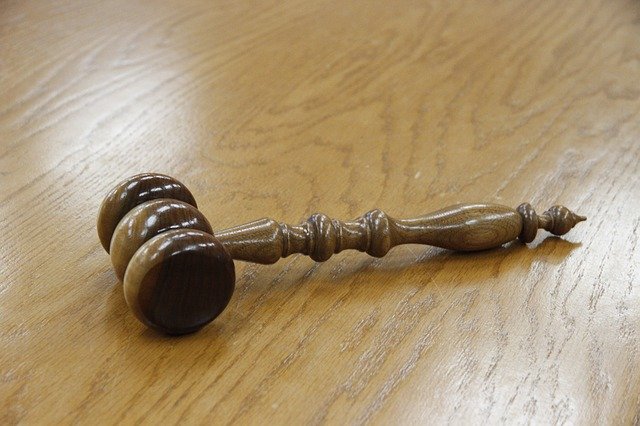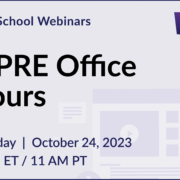The MPRE And The Code Of Judicial Conduct
The MPRE And The Code Of Judicial Conduct
It is commonly known that the MPRE (Model Professional Responsibility Exam) tests the Model Code of Professional Conduct (MRPC) for Lawyers. Did you know that the MPRE also tests an entirely separate code of conduct for judges? The Model Code of Judicial Conduct (CJC) is also tested on the MPRE!
In this post, we discuss what you need to know from the Model Code of Judicial Conduct!
The MPRE And The Code Of Judicial Conduct
Of the 50 scored questions that you will answer on the MPRE, only 2-8% of the questions (which is approximately 1-4 questions) will be on the Code of Judicial Conduct. On average, you should expect to see approximately two questions testing the Code of Judicial Conduct on the MPRE. The problem is that there are a lot of rules to learn in the Code of Judicial Conduct for a measly two questions!
While you should not ignore the Code of Judicial Conduct, it is wise to spend your time efficiently. Focus on the bigger rules and more highly tested issues to maximize your knowledge, while not spending too much time on what won’t be worth very many points. Here are some of the things we think you should definitely know from the Code of Judicial Conduct:
Reporting the misconduct of another lawyer or judge
Similar to the rule that applies to lawyers, a judge that knows another judge or lawyer has committed a violation of the CJC or MRPC that raises a substantial question regarding the judge’s or lawyer’s honesty, trustworthiness, or fitness as a judge or lawyer in other respects shall inform the appropriate authority.
Disqualification of a judge
This is a big and important rule to know! In general, a judge shall (notice that it is mandatory!) disqualify himself or herself in any proceeding in which the judge’s impartiality might reasonably be questioned. This includes but is not limited to when the judge:
- Has a personal bias or prejudice concerning a party or a party’s lawyer, or personal knowledge of facts that are in dispute in the proceeding;
- Is likely to be a material witness in the proceeding;
- Knows that the judge, the judge’s spouse or domestic partner, or a person within the third degree of relationship to either of them is
- A party to the proceeding or an officer, director, general partner, managing member, or trustee of a party;
- Acting as a lawyer in the proceeding;
- A person who has more than a de minimus interest that could be substantially affected by the case;
- Knows that he or she, individually or as a fiduciary, or the judge’s spouse, domestic partner, parent, or child, or any other member of the judge’s family residing in the judge’s household, has an economic interest in the subject matter in controversy or is a party to the proceeding;
- Knows or learns by means of a timely motion that a party, a party’s lawyer, or the law firm of a party’s lawyer has within the previous year made a certain number of contributions to the judge’s campaign;
- While a judge or judicial candidate, has made a public statement, other than in a court proceeding, judicial decision, or opinion, that commits or appears to commit the judge to reach a particular result or rule in a particular way in the proceeding or controversy;
- Did any of the following:
- Served as a lawyer in the matter in controversy or was associated with a lawyer who participated substantially as a lawyer in the matter during such association;
- Served in governmental employment, and in such capacity, participated personally and substantially as a lawyer or public official concerning the merits of the particular matter in controversy;
- Was a material witness concerning the matter; or
- Previously presided as a judge over the matter in another court.
Accepting and reporting gifts
This rule prohibits a judge from accepting any gifts, loans, bequests, benefits, or other things of value if acceptance is prohibited by law or would appear to a reasonable person to undermine the judge’s independence, integrity, or impartiality.
Participation in extrajudicial activities
Judges are permitted to engage in extrajudicial activities (i.e., work and other activities outside of their positions as judges), but cannot do any of the following:
- Engage in conduct that would appear to a reasonable person to be coercive;
- Make use of court premises, staff, stationery, equipment, or other resources, except for incidental use for activities that concern the law, the legal system, the administration of justice, or unless such additional use is permitted by law;
- Participate in activities that will interfere with the proper performance of the judge’s judicial duties;
- Participate in activities that would appear to a reasonable person to undermine the judge’s independence, integrity, or impartiality;
- Participate in activities that will lead to frequent disqualification of the judge.
Testifying as a character witness
Interestingly, a judge is not permitted to testify as a character witness in a judicial, administrative, or other adjudicatory proceeding, or otherwise vouch for the character of a person in a legal proceeding, except when duly summoned.
Appointments to government positions
This rule prohibits the judge from accepting appointments to governmental committees, boards, commissions, or other governmental positions unless the position concerns the law, legal system, or administration of justice. The problem with these types of positions is that they can be very time-consuming and can interfere with the independence of the judiciary!
Practicing law
A full-time judge (does not apply to part-time judges!) may not practice law. However, a judge may act pro se and may, without compensation, give legal advice to and draft or review documents for a member of the judge’s family. However, the judge may not serve as the family member’s lawyer in any forum!
Participation in discriminatory organizations
A judge is strictly prohibited from participating in an organization that practices invidious discrimination on the basis of race, sex, gender, religion, national origin, ethnicity, or sexual orientation.
Additionally, even if the judge is not a member, the judge must not use the benefits or facilities of an organization if the judge knows or should know that the organization practices invidious discrimination!
Check out our MPRE Cheat Sheet and be sure to check out JD Advising’s free MPRE course!
Looking to Ace the MPRE?
- Enroll in our 5-star rated free MPRE Course, complete with expert guidance, an exclusive outline, practice questions, and a one-sheet.
- Tackle the Real MPRE questions — the gold standard for test preparation.
- Elevate your preparation with personalized MPRE private tutoring, featuring a tailored study plan and dedicated MPRE outline.
- Dive into our assortment of complimentary top-notch MPRE resources for your success.






Leave a Reply
Want to join the discussion?Feel free to contribute!